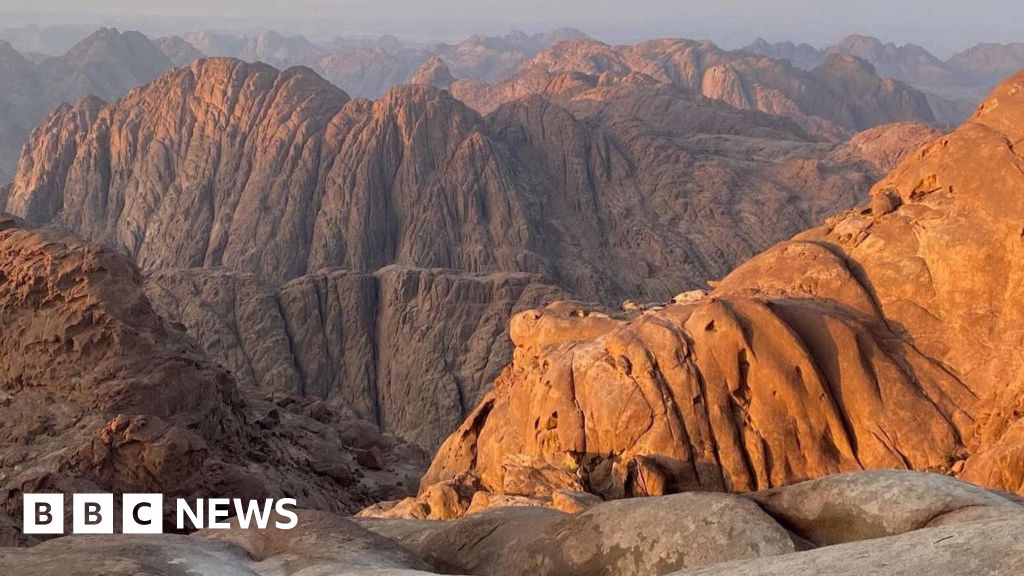Luxury hotels, villas and bazaars are being built at the revered biblical site, which is home to Bedouins.
Why it matters
- The development of luxury accommodations at this biblical site raises concerns about the preservation of cultural heritage and the impact on local communities.
- Bedouin inhabitants are facing challenges as their traditional lifestyle comes under threat from increasing commercial activities.
- The project exemplifies the ongoing tension between tourism development and the preservation of historical and cultural sites.
In a significant transformation of a revered biblical location, the construction of luxury hotels, upscale villas, and bustling bazaars is underway, raising eyebrows and concerns among local Bedouin communities. This area, rich in history and cultural significance, is witnessing a shift that could alter its landscape and heritage forever.
The site, known for its deep biblical roots, is not only a tourist attraction but also a home to Bedouin tribes who have lived in harmony with the land for generations. However, the influx of luxury developments threatens to disrupt this delicate balance. As opulent accommodations begin to dot the landscape, questions arise about the implications for both the local residents and the environment.
Critics argue that the construction of high-end hotels and villas may cater primarily to affluent tourists, sidelining the needs and rights of the Bedouin people. The Bedouins, who have relied on the land for their livelihood and cultural practices, are now facing an uncertain future as their way of life is increasingly overshadowed by commercial interests.
Local leaders and cultural advocates are voicing their concerns, stressing the importance of preserving the historical and cultural integrity of the site. They argue that while tourism can bring economic benefits, it must not come at the expense of local communities and their heritage. The Bedouins, with their rich traditions and deep connections to the land, are integral to the identity of the area, and their voices must be included in the planning and development processes.
In recent years, the region has seen a surge in interest from developers looking to capitalize on its biblical significance. The rise of luxury accommodations reflects a broader trend in the tourism industry, where unique historical sites are transformed into high-end destinations. However, such transformations often lead to gentrification, pushing local populations out of their ancestral lands.
Proponents of the development argue that it will boost the local economy by attracting international visitors and creating jobs. They point to the potential for increased revenue from tourism, which can be reinvested into the community. However, the benefits are often unevenly distributed, with many local residents finding themselves unable to afford the rising cost of living in their own neighborhoods.
In light of these developments, calls for sustainable tourism practices have gained momentum. Advocates emphasize the need for a balanced approach that respects both cultural heritage and environmental sustainability. They argue that engaging local communities in the development process is crucial for ensuring that their voices are heard and their needs are met.
The ongoing construction at this biblical site serves as a microcosm of a larger global challenge: how to balance the demands of tourism with the need to protect cultural and historical integrity. As the luxury hotels and villas rise, the question remains whether the local Bedouin community will be able to maintain its identity and way of life amidst the encroaching commercial landscape.
As the situation continues to evolve, it will be essential for stakeholders, including government officials, developers, and community leaders, to engage in meaningful dialogue. Finding a path forward that honors the history and culture of the Bedouin people while also embracing the potential benefits of tourism will be critical in shaping the future of this cherished biblical site.
In conclusion, the developments at this historical location highlight the complex interplay between tourism, economic growth, and cultural preservation. The fate of the Bedouin community hangs in the balance as luxury projects reshape their homeland, making it imperative that their voices are included in the ongoing discussions about the future of the site.











